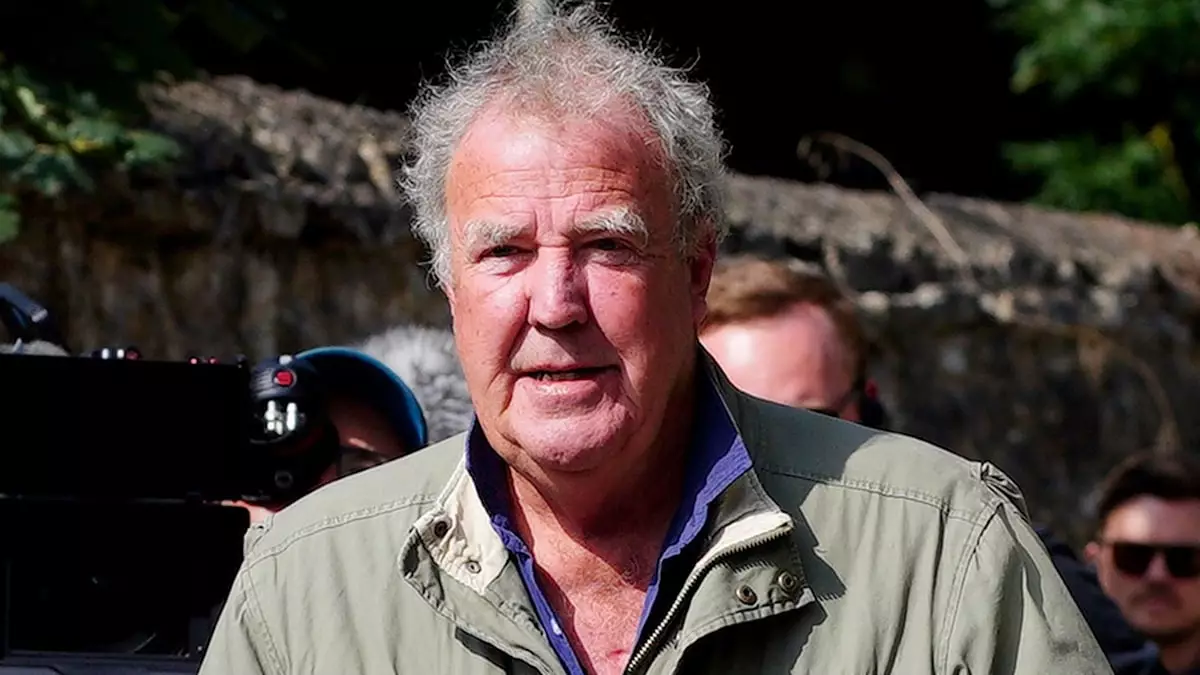Jeremy Clarkson, the outspoken personality known for his work on automotive programming, has captivated audiences not only through television but also via social media, particularly Instagram. Recently, he stirred a mixture of concern and confusion among his 8.8 million followers when he urged them to “pray for us” in the wake of severe weather warnings associated with Storm Éowyn. The storm threatened to wreak havoc across the UK, prompting warnings that highlighted a significant “danger to life” amid its violent passages.
Clarkson, who owns Diddly Squat Farm in the picturesque Cotswolds, shared a video portraying his lush, sunlit fields, brushing off the alarming warnings with characteristic levity. His light-hearted response juxtaposed sharply with the reports of unpredictable 90 mph wind gusts sweeping through various regions, causing flight cancellations and widespread disruption. With a nonchalant demeanor, Clarkson remarked, “We are battling to survive the storm at Diddly Squat,” presenting a comedic take that seemed out of sync with the grim reality others were facing.
While many followers appreciated Clarkson’s trademark humor—evident in sunny visuals where trees swayed gently rather than battled with fierce winds—his flippancy was not lost on all. Comments erupted with humor mirroring his, yet a significant portion of his audience voiced concern regarding the potential insensitivity of the tone. “Good heavens! Run!” one follower humorously exclaimed, while others questioned whether his humor was suitable given the circumstances.
Critics highlighted the divide that Clarkson’s approach created. Those genuinely struggling with the storm’s power found little joy in Clarkson’s hard-to-miss irony. The discontent surged as onlookers reminded him of the gravity of the situation faced by many across the nation. Such polarized reactions elicit an essential reflection on the role of public figures in navigating humor amid crises, as Clarkson’s carefree banter, while amusing to some, seemingly trivialized the dire experiences of others.
In the continued saga of Clarkson and social media backlash, the conversation shifted from storms to soaring prices of farm produce. Recent discussions around his Diddly Squat Farm Shop centered on the outrageous claims of a £200 pie and other overpriced assortments, fostering a wave of critique directed at Clarkson’s culinary pricing.
Faced with this fervor, Clarkson took to X (formerly Twitter) to clarify and joke about the situation. He addressed a review that depicted a dismal encounter with inflated prices at his farm’s shop and pub, where a £2 parking fee and a series of premium items were highlighted. This prompted Clarkson to humorously dismiss the accusations, particularly the fanciful assertion about the pork pie, which he claimed was more for show than consumption.
Clarkson’s response serves as an illustrative case of the thin line between humor, marketing, and responsibility. While his jesting tone aimed to downplay the criticisms, the underlying issue of affordability in local British markets cannot be overlooked. Many customers find themselves struggling with the diminishing purchasing power, making Clarkson’s exorbitant prices all the more inflammatory, especially as they reflect wider socio-economic challenges.
As a public figure, Jeremy Clarkson embodies the complex interplay between satire and sensitivity that governs celebrity culture today. His wit generates engagement, but it also invites scrutiny. In an era when social media amplifies every remark, Clarkson’s ability to balance levity with awareness is crucial. The dual nature of his recent posts—encouraging prayers during perceived lighthearted turmoil and defending quirky yet high-priced products—demonstrates the challenge faced by public personalities in these uncertain times.
Navigating humor amongst serious societal issues requires both deftness and empathy. Clarkson’s encounters with stormy weather and contentious culinary costs encapsulate the broader challenges he faces in relating to his audience. As he continues to share snippets of his life on social media, it remains to be seen how he will balance comedic banter with the compassion needed during difficult times that many are endure.

